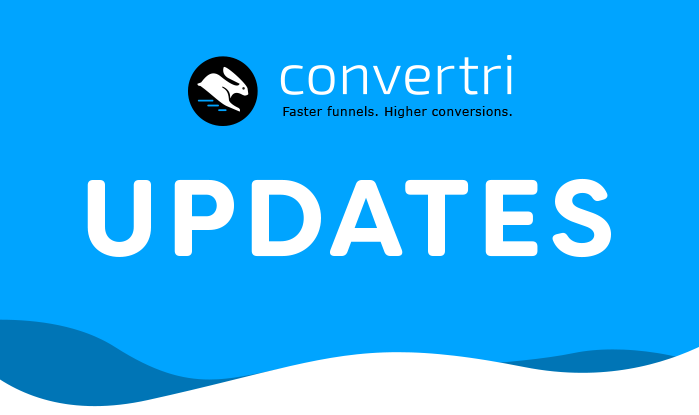What Google Algorithm Updates Mean
Google changes its algorithm – the behind-the-scenes math which allows Google to find, rank and return the most relevant pages for a certain search query – fairly often.
If you’re a marketer, and you’re savvy to the fact that you should be paying attention to Google algorithm updates (which you should) it can seem like these algorithm updates happen all… the… time.
But why does Google update its algorithm so often? What are they trying to achieve? And are there best practices you can follow instead of updating your pages on the search engine giant’s whim?
Read on to find out more.
How Google page ranks work
First of all, let’s take a look at how the whole search results page thingy is put together.
Google’s ranking system consists of multiple algorithms that consider various factors. These five factors (officially listed by Google) are related to the search query the user enters: its meaning, page relevance, content quality, usability and context.
Here’s what they mean for you.
1. Meaning of the query
To give you what you searched for, Google needs to understand what you entered and what kind of thing you’re expecting to see. The search engine needs to understand the variables included in your search query, such as:
- Meaning of the words – what is the actual definition of the words you entered?
- Search intent behind the query – what do you want when you search this? Are you looking for a review, a definition, a product, or some kind of knowledge?
- Time sensitivity – are you looking for the latest updates or old knowledge?
We’ve learned to make a lot of things pretty easy for Google. No one (well, maybe your grandma) types: “Could you please show me some good websites that offer the new iPhone, I’m thinking about buying it” into Google. We’re more likely to enter: “buy new iPhone”, making our search intent pretty clear – the type of phone we’re after, our intent to purchase, and the need to see only the latest model.
But we use Google in many other ways, too. And we can really stretch its digital imagination sometimes.
Take the search term: “history of rock”.
Are we looking for a musical timeline of rock’s greatest hits? Are we curious about Dwayne “the Rock” Johnson’s rise to fame? Or are we searching for academic material for our geology paper? Google needs to quickly find that out before it shows us our results – and it’s gotten pretty good at that lately.
For example, Google will take into account our prior searches: have we been searching for scholarly material on fluvial formations, or wrestling matches? Has Dwayne been in the news lately, plugging his new movie, or is there a big musical anniversary coming up?
Google knows all this, and it’s able to figure out what we probably need to see in a fraction of a second.
2. Page relevance
Next, the search engine has to find what pages are relevant to our search query. Its sole aim in life is to find and return the web pages that answer our query in the most straightforward, relevant way possible.
It does this fairly simply, by regularly crawling and indexing of all the websites on the internet and analyzing their content with even more technological wizardry to figure out what that page is about, and how closely it matches keywords and search intent. If the search query and related phrases appear on the page, there’s a high chance the page is relevant for the user.
Or… that’s how it used to work.
A practice called “keyword stuffing” ruined it for everyone and made Google’s job a lot harder. A so-called “black hat” SEO practice, keyword stuffing involved hiding a huge list of keywords at the end of a page – usually with white text on a white background – in order to artificially boost the page’s ranking for those keywords. That meant Google had to get smarter – and these days it uses more advanced AI to work out how a page is relevant to any given search query.
Simply speaking, keywords still play a vital part in the process – but now Google is much smarter at working out if a human wrote the page in a useful way.
3. Content quality
This is one area where good marketing skills can really boost page rank. There are likely millions of pages for each search query, so Google has to prioritize the ones that offer high quality content that will answer your query. It does this by investigating:
- Expertise – is the knowledge up to date and reliable?
- Authoritativeness – is the source an expert on the subject?
- Trustworthiness – is the information truthful?
And if you’re a good marketer, you’ll know several methods to boost the appearance of expertise, authoritativeness and trustworthiness on a page.
One of the key elements is that Google takes into account the quality and quantity of links pointing to a page: in short, the more good backlinks you get, the more likely you are to get top spot on the page. It’s like having friends vouch for you.
4. Page usability
Oh, boy. Now we’re into the good stuff.
Over the past few years in general, Google has put an enormous amount of focus on page usability. In fact, user-friendliness is becoming so important that non-user-friendly pages are actually being penalised in search engine rankings.
Accessibility is important: readability, too, and especially mobile formatting. This includes technical aspects such as:
- Page responsiveness
- Page speed
- Mobile versions
- Security of the website
But it will also take into account other readability factors, such as confusing formatting (make sure your headings are all in the right order) and even spelling and grammar (proofread, people!).
Page speed in particular is of mounting importance: find out more about this here.
5. Context
Last but not least, the search results are heavily influenced by… well, you. As in, the you who is searching. Google knows a heck of a lot about us: it knows our preferences, shopping habits, daily routines and more. It uses all this information to show us what we really need in search results.
What affects our search results may be things like:
- Our location
- Search history
- Search settings (e.g. if SafeSearch is on or off)
For example, a search for “football results” is going to look different for people in the United States and the United Kingdom. And even in the UK, if Google knows our precise location, it will show different results for that simple query based on where we are and whether our local football team had a match recently.
And, like in the previous example, if Google knows we search a lot about geological formations it’s less likely to show us results about Dwayne Johnson or the Rolling Stones if we search for “rock”.
So what do updates mean?
When Google updates its algorithms, it’s simply trying to do its job better. It’s identified a new way of adding context to pages, tweaked how it interprets bold or italic formatting, or has learned something new about history which puts different search results in a new light.
Algorithm updates don’t mean swathes of pages disappear from search results overnight, and even if so, it’s likely this is because they never deserved to be there in the first place.
In general, you don’t need to worry – unless you’ve employed shady practices such as keyword stuffing which algorithm updates aim to make obsolete.
When it comes to making sure your pages rank, there is just one best practice you need to follow: make it human.
Don’t look for shortcuts and try and “hack” your SEO – but know what Google’s looking for, and if you’ve got it, put it front and centre. Share expert knowledge. Grow backlinks organically. Nurture relationships. Check your spelling.
Google’s getting smarter at knowing what pages we like to see: so all you need to do is create pages worth sharing.
What’s your experience with Google algorithms? Let us know in the comments!





